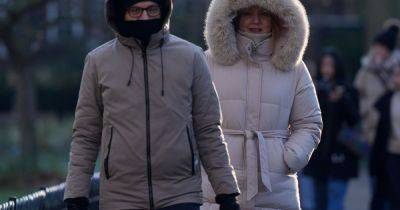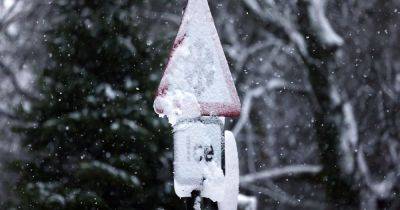Why the UK is currently so cold as temperatures drop to -13.3c
The Met Office forecasts a ‘prolonged period of snow’ for the rest of the week in the UK as icy blasts and cold temperatures sweep across the country.
The UK experienced its coldest night of winter so far last night, with -13.3°C recorded in Loch Glascarnoch in Scotland.
As more weather warning are issued, the UK Health Security Agency (UKHSA) has extended an amber health alert for cold weather for all regions in England until Sunday.
Wintery scenes common during the winter months, but what exactly triggers these extreme and potentially life-threatening cold snaps?
A cold snap is a weather event characterised by a rapid fall in temperature and a short period of cold and icy weather.
Much of the extreme cold weather we see in the winter months can be explained by the North Atlantic Oscillation (NAO), which the Met Office describes as a ‘large-scale atmospheric pressure see-saw’.
In a negative NAO phase, where there is a weaker than usual difference in pressure between the sub-tropical and sub-polar regions, there is a reduction in the strength of westerly winds. This results in colder and potentially snowy conditions in the UK, as our weather comes from the north or east.
Here are a two possible factors which affect the NAO and can cause cold snaps to occur.
The polar vortex is a region of winds up to 30 miles (50 km) above the Earth. It is present in winter where it can strengthen and weaken throughout the season.
The Met Office says these fluctuations have an effect on the atmosphere lower down and, in turn, changes our weather. For example, a prolonged weakening of the polar vortex tends to result in negative NAO and cold snaps.
Whilst scientists aren’t clear about the exact effect Arctic sea ice has on UK weather,








